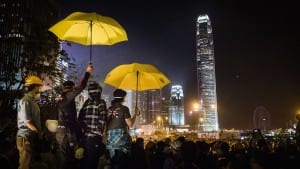The international protection of refugees and asylum seekers: New thinking, or no future?
By ucyow3c, on 28 February 2016
![]() Written by Gaiane Nuridzhanian, PhD candidate, UCL Laws
Written by Gaiane Nuridzhanian, PhD candidate, UCL Laws

On 24 February 2016 Professor Guy Goodwin-Gill, Emeritus Professor of International Refugee Law at the University of Oxford, spoke at UCL about the current migrant crisis and the new approaches to employing the existing framework of international protection of refugees and asylum seekers to overcome it.
According to Professor Goodwin-Gill, one of the gaps of the current international legal system for refugee and asylum seekers protection lies in the failure to establish a framework based on co-operation and reciprocity. Indeed, such basic instruments as the 1951 Convention and 1967 Protocol Relating to the Status of Refugees do not contain provisions, which identify a specific state responsible for assisting a refugee or asylum seeker or a third state that should extend its co-operation to the refugee receiving state.
The system can be improved by refining the existing institutions rather than by revising the treaty base. For instance, revising the UNHCR statute to expressly include stateless and internally displaced persons within its mandate, providing proper funding for the UNHCR, enhancing UN inter-agency co-operation and devising an early-warning system to be managed by the UN bodies.
 Close
Close




